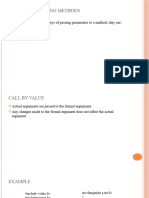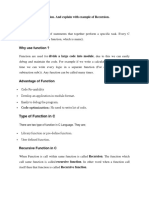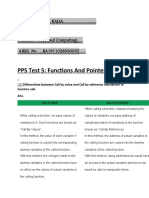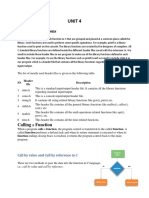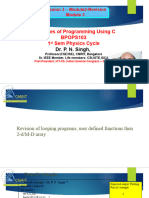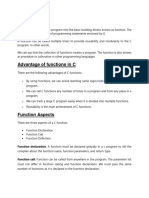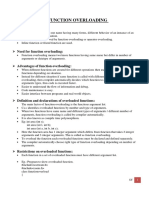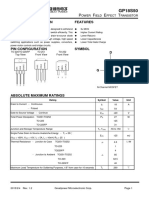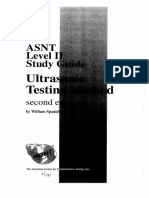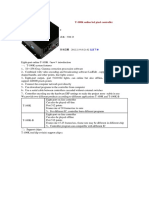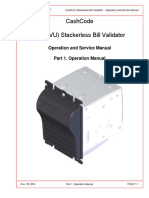0% found this document useful (0 votes)
10 views13 pages(L3) Functions & Recursion
The document provides an overview of functions in C programming, detailing their definition, types (library and user-defined), and key concepts such as pointers, call by value, call by reference, and recursion. It explains how functions group common code, the process of function declaration, definition, and calling, as well as examples of swapping values and calculating sums using recursion. Additionally, it highlights the advantages and disadvantages of recursion compared to iterative approaches.
Uploaded by
sushantsharma2929Copyright
© © All Rights Reserved
We take content rights seriously. If you suspect this is your content, claim it here.
Available Formats
Download as PDF, TXT or read online on Scribd
0% found this document useful (0 votes)
10 views13 pages(L3) Functions & Recursion
The document provides an overview of functions in C programming, detailing their definition, types (library and user-defined), and key concepts such as pointers, call by value, call by reference, and recursion. It explains how functions group common code, the process of function declaration, definition, and calling, as well as examples of swapping values and calculating sums using recursion. Additionally, it highlights the advantages and disadvantages of recursion compared to iterative approaches.
Uploaded by
sushantsharma2929Copyright
© © All Rights Reserved
We take content rights seriously. If you suspect this is your content, claim it here.
Available Formats
Download as PDF, TXT or read online on Scribd
/ 13





